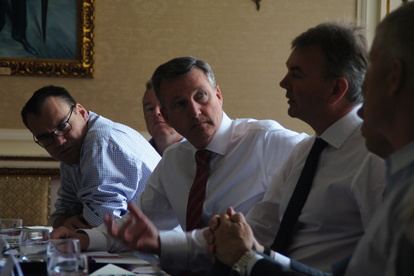Expert: Alexander Chartres, Investment Directo, Ruffer LLP Facilitator: Ben MacGregor, Director, Client Development, Savanta
Headlines:
- Within environmental investing there is huge complexity so nuanced investing will be the order of the day
- Climate change is already physically reordering global political economy, pushing us from a hydrocarbon world order to a metal world order on top, and driving upheaval in many industries, notably energy
- Humans are culturally hard-wired to fear the worst when it comes to natural risk
- Investors therefore need to understand what the narratives driving public policy and investment decisions are
Context:
Natural risk – including pandemics, climate change and any other environmental risk – is an increasingly important consideration for investors, as the Covid crisis and climate change attest. But it’s often the policy response by governments and narrative response by investors that matters more for markets: i.e. it wasn’t Covid per se which caused the greatest economic damage, but associated lockdowns.
China has sought dominance of clean technologies, and the West is now playing catch-up to secure its own supply chains. There was an extensive discussion about the relative merits of investing in China – especially growing risks in the context of a new Cold War.
By encouraging greater state interventionism and geopolitical instability, not to mention real-world environmental pressure, natural risk is one of many megatrends driving markets and the economy into a new, more inflation-prone and volatile era.
That has big implications for many of the most popular investment strategies around today, because inflation and volatility can change correlations between – and performance of – major asset classes. But alongside the risks there are huge investment opportunities, ranging from metals and mining to nuclear energy, infrastructure and much more besides.
Discussion around the dichotomy of hydropower being able to reduce reliance on hydrocarbons, but this can warp and distort the world’s water supplies. China’s dam building spree was highlighted as damaging Asia’s water supply. There was some surprise expressed by delegates as to the importance of water moving forward.
Industrial policy is back, given the number of macro issues facing the globe – Ukraine war, inflation, prices etc. The discussion looked at how greater policy cohesion between countries, or even competing blocs would be needed moving into the future, hence the return of industrial policy.
Key takeaways:
Moving forward we will see:
- More natural risk and therefore policy responses
- More liable to inflation and therefore greater volatility
- Substantial generational risks but with them comes huge opportunity


